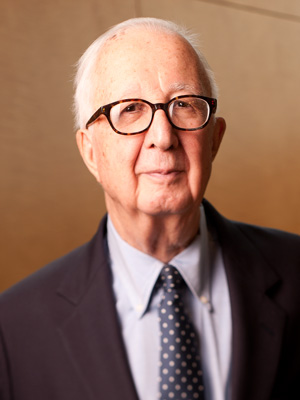 Abe Krash was 35 years old and a junior partner at Arnold, Porter & Fortas in the summer of 1962 when name partner Abe Fortas asked for his help on a pro bono assignment. The pair had worked together on paying and pro bono matters, including a landmark case, Durham v. U.S., which for many years set the standard used to define insanity in criminal cases. This time, Krash recalls, Fortas asked him to research "everything about the right to counsel since the invention of money."
Abe Krash was 35 years old and a junior partner at Arnold, Porter & Fortas in the summer of 1962 when name partner Abe Fortas asked for his help on a pro bono assignment. The pair had worked together on paying and pro bono matters, including a landmark case, Durham v. U.S., which for many years set the standard used to define insanity in criminal cases. This time, Krash recalls, Fortas asked him to research "everything about the right to counsel since the invention of money."
Fortas had just been appointed by the U.S. Supreme Court to represent Clarence Earl Gideon, who was convicted of petty larceny by a Florida state court that also denied his request for a lawyer. Gideon appealed the denial pro se to the state's supreme court, which rejected his appeal. Gideon turned to the Supreme Court.
This content has been archived. It is available through our partners, LexisNexis® and Bloomberg Law.
To view this content, please continue to their sites.
Not a Lexis Subscriber?
Subscribe Now
Not a Bloomberg Law Subscriber?
Subscribe Now
LexisNexis® and Bloomberg Law are third party online distributors of the broad collection of current and archived versions of ALM's legal news publications. LexisNexis® and Bloomberg Law customers are able to access and use ALM's content, including content from the National Law Journal, The American Lawyer, Legaltech News, The New York Law Journal, and Corporate Counsel, as well as other sources of legal information.
For questions call 1-877-256-2472 or contact us at [email protected]




